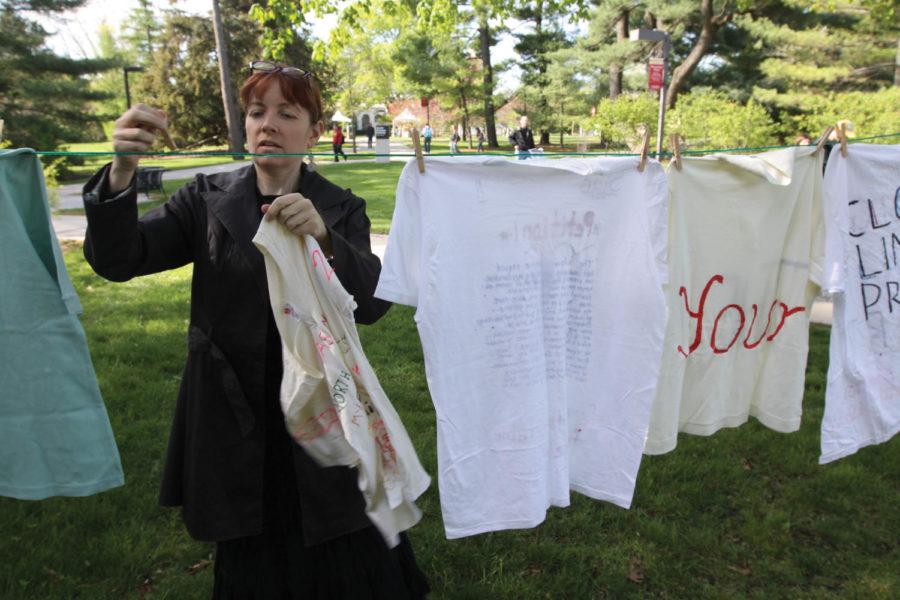Clothesline Project airs dirty laundry of sexual assault
April 17, 2012
As students shuffled across Central Campus on Tuesday, they may have noticed an unusual sight: a row of T-shirts hanging on a clothesline outside the Sloss House.
No, the Margaret Sloss Women’s Center did not decide to do a midday load of laundry. These shirts were hung in an effort to raise awareness of sexual assault.
The Margaret Sloss Women’s Center teamed up with the Assault Care Center Extending Shelter and Support (ACCESS) in order to host the annual Clothesline Project, a project dedicated to informing students about the issues of sexual violence.
“The idea behind the Clothesline Project is to air out the dirty laundry that no one wants to talk about and to support victims of sexual assault,” said Annie Whipple, an intern at ACCESS.
The hanging T-shirts provide a visual representation and contain personal words from sexual assault survivors. Survivors are invited to the Sloss House and are given the opportunity to decorate an T-shirt as a form of art therapy.
“We hope that survivors of sexual assault will find empowerment and community in this project,” said Petey Peterson, graduate assistant and equity and social justice educator.
The Clothesline Project is a nationwide project that has been held annually on many college campuses since 1990. The ACCESS facility of Ames has been a part of this project since 1998, and the trend in recent years has been to host the project on the ISU campus. Because of Iowa State’s involvement, steps have been taken to revamp the program to make it more visible and effective among ISU students.
“We want to do more than raise awareness. We want to strive for more understanding,” Peterson said. “Our goal is to strive for an understanding that sexual assault is a reality and to create the passion needed to change this.”
Also present at the Sloss House on Tuesday was Alpha Kappa Lambda fraternity’s philanthropy These Hands Don’t Hurt, an event in which individuals may pledge to end sexual violence.
“These Hands Don’t Hurt works hand in hand with the Margaret Sloss Women’s Center to help raise awareness of sexual assault and at the same time raise money for the ACCESS center,” said Nathan George, member of Alpha Kappa Lambda.
The Margaret Sloss Women’s Center encourages students to get involved with the sexual assault awareness effort. Students are invited to volunteer at the Women’s Center or at ACCESS. Above all, education on the topic is highly encouraged.
“The best way to combat sexual assault is to have conversations about it,” Peterson said. “This is everyone’s issue, whether you have been affected by it or not.”

















